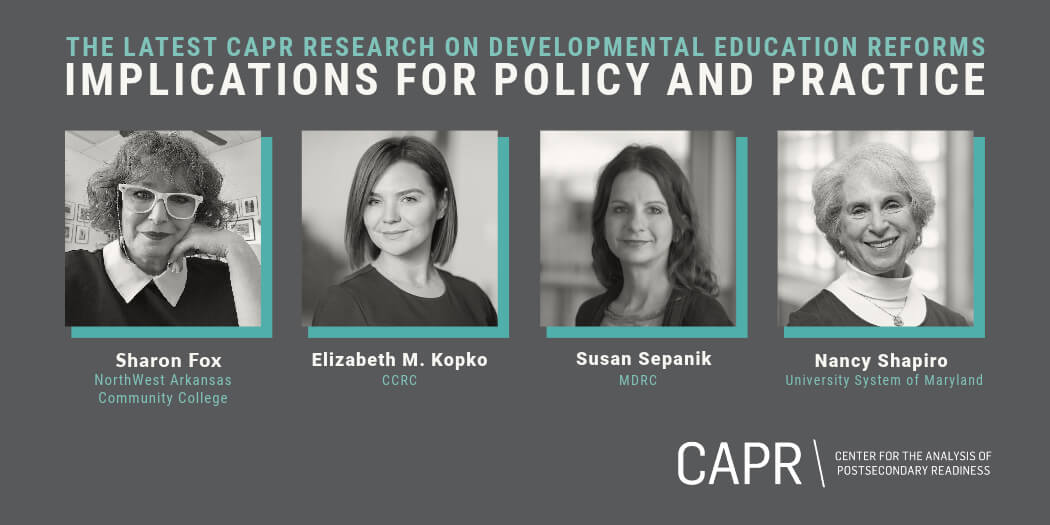CAPR Blog
Promoting Equity in Developmental Education Reform: A Conversation with Nikki Edgecombe and Michael Weiss
In a new episode of MDRC’s Evidence First podcast, Leigh Parise talks with Nikki Edgecombe, a senior research scholar at CCRC who leads CAPR, and Michael Weiss, a senior fellow in postsecondary education at MDRC, about what has been learned about promoting equity in developmental education reform.
CAPR Survey Shows Widespread Adoption of Developmental Education Reforms
The second post in a series on multiple measures assessment (MMA) in a corequisite remediation context, this blog post explores survey results that provide the first update on the increased reach of major developmental education reforms since 2016.
Student Responses to Artificial Intelligence
This blog post explores survey results to see if students who use AI for their assignments feel they are able to learn and connect with classroom material, and whether they feel AI affects their writer's voice and ability to think critically.
CAPR Link Roundup: Bolstering Developmental Education Reform With Additional Supports
Several recent research publications look at how reforms to the structure of developmental education combine with other reforms and supports to make a bigger difference for students. This blog shares resources to learn more about developmental education and transfer, developmental education and success coaching, and ESL reforms in California, along with several reports on corequisite courses.
CAPR Webinar Explores Long-Term Findings From Two Major Studies of Developmental Education
In a recent webinar, Elizabeth Kopko and Susan Sepanik of CAPR, along with Sharon Fox of NorthWest Arkansas Community College and Nancy Shapiro of the University System of Maryland, discussed the long-term results of two studies on developmental education reforms and how colleges and systems have changed their policies and practices in response to the findings.
Podcast: The Benefits of Using Multiple Measures Assessment to Bump Students Into College-Level Courses
In this podcast discussion with CCRC’s Elizabeth Ganga, CCRC and CAPR researchers Elizabeth Kopko and Hollie Daniels explain what they found when they looked at the data after nine semesters and what educators and policymakers should take from the research.






